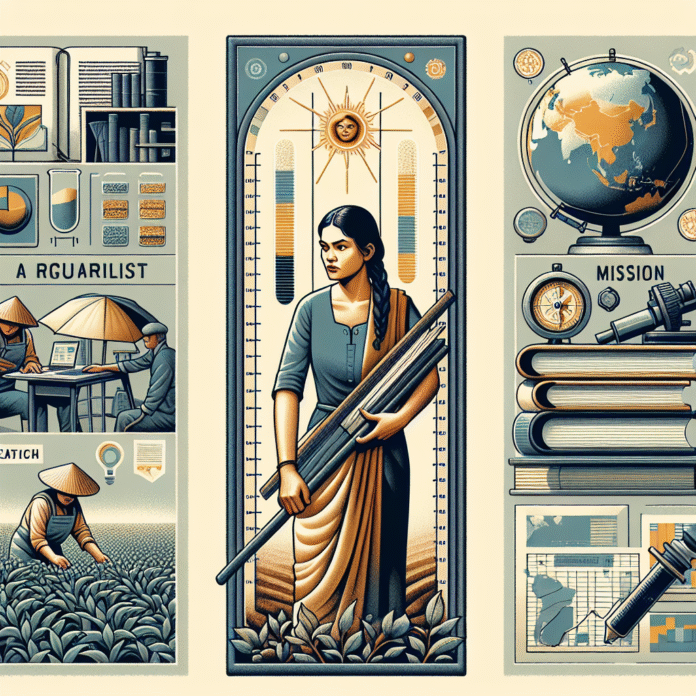The Farmer Science and the Agenda
The Farmer, the Science, and the Agenda
The relationship between agriculture and scientific research has always been complex, characterized by a dynamic interplay of innovation, tradition, and sometimes, controversy. Farmers, as the backbone of food production, often find themselves at the intersection of scientific advancements and regulatory frameworks. This article aims to delve deeper into the evolving role of farmers in the context of modern agricultural science and the agendas that influence their practices.
The Role of Farmers in Agricultural Innovation
Farmers are not merely practitioners of age-old methods; they are increasingly becoming innovators who adapt to new technologies and scientific research. With the advent of precision agriculture, for instance, farmers can utilize data analytics, satellite imagery, and IoT devices to optimize crop yields and resource use. This shift is not only about increasing productivity but also about sustainability. By adopting more efficient farming practices, they aim to minimize their environmental footprint while meeting the growing global food demand.
The Influence of Scientific Research
Scientific research plays a pivotal role in shaping the agricultural landscape. Breakthroughs in biotechnology, for example, have led to the development of genetically modified organisms (GMOs) that are resistant to pests and diseases. While these innovations hold the promise of increased food security, they also come with public concerns regarding health and ecological impacts. The debate surrounding GMOs illustrates the tension between scientific progress and public perception, highlighting the need for transparent communication and education.
Regulatory Agendas and Their Impact
Regulatory frameworks can significantly influence agricultural practices. Policies aimed at promoting sustainable farming often come with stringent guidelines that farmers must navigate. While these regulations are designed to protect the environment and public health, they can also pose challenges for farmers trying to implement innovative solutions. The balance between regulation and innovation is delicate; excessive restrictions can stifle progress, while too lenient an approach may lead to adverse environmental consequences.
The Global Context
In the global arena, agricultural practices are further complicated by trade policies, climate change, and socio-economic factors. Farmers in developed countries may have access to cutting-edge technology and funding, while those in developing nations often struggle with limited resources. This disparity can lead to a significant gap in agricultural productivity and food security worldwide. Addressing these issues requires a collaborative approach, where knowledge sharing and technology transfer become key components of international agricultural development.
The Future of Farming
Looking ahead, the future of farming will likely hinge on the continuous integration of science and agriculture. As climate challenges intensify, farmers will need to rely on innovative practices, including regenerative agriculture, to adapt and thrive. Additionally, consumer preferences are shifting towards organic and sustainably sourced products, pushing farmers to rethink their strategies and embrace more eco-friendly practices.
Moreover, the role of farmers in advocacy cannot be overlooked. As stewards of the land, they have a unique perspective on the challenges and opportunities that lie ahead. Engaging in policy discussions and scientific research can empower farmers to influence agendas that affect their livelihoods and the environment, ensuring that their voices are heard in the decision-making processes.
Conclusion
The relationship between farmers, science, and regulatory agendas is intricate and evolving. As agriculture faces unprecedented challenges, it is crucial for farmers to remain at the forefront of innovation while navigating the complexities of scientific research and policy. By fostering collaboration among scientists, policymakers, and farmers, we can pave the way for a more sustainable and secure agricultural future. Embracing this holistic approach will ultimately benefit not only farmers but also the global community reliant on their vital contributions to food production.
